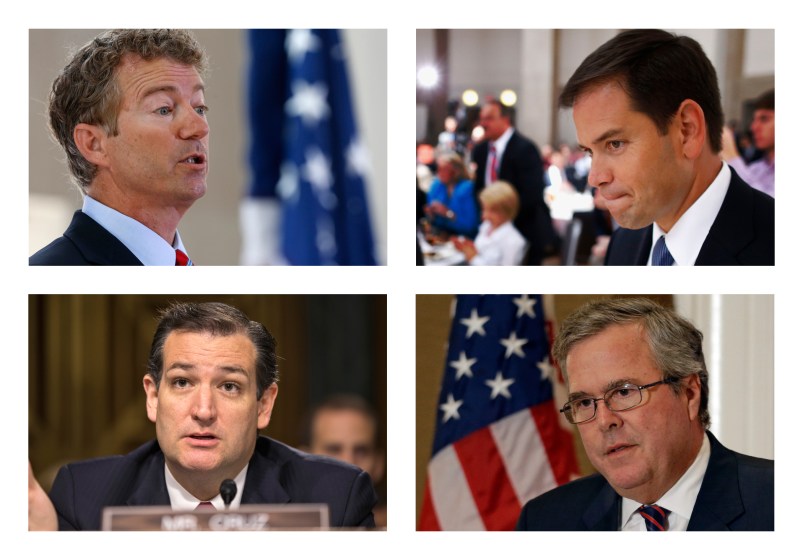This has not been a good few days for Jeb Bush. But I want to highlight one issue this is bringing to the fore about his campaign and the entire 2016 primary process. Through all this clumsy fumbling over “would you invade Iraq” what’s most conspicuous is the dog that is not barking. It is very hard to find any Republican partisans that are lifting a finger to defend him. Laura Ingraham kicked things off ridiculing him. Byron York wrote a merciless column lambasting Bush both for the substance of his remarks and their optics. But it goes well beyond these Republican commentator-elites.
It is one of the key features of early 21st century political campaigns and political life in general that every political figure requires a chorus of dedicated partisans who lay down the equivalent of covering fire in their leader’s defense. Sometimes this happens with a political figure who attracts intense loyalty. But that’s seldom required. Partisans on both sides of the political divide will generally rush to the defense of almost any political figure on their team, even if the person isn’t terribly well liked or even if they’re getting grief for something that is pretty hard to defend.
In political scandals, it is almost always when that chorus falls silent that you know the target of the scandal is through. As we learned during the long years of the Iraq War or in the endless explanations for the lack of Weapons of Mass Destruction, it doesn’t seem to matter in many cases whether the arguments of your defenders even make a lot of sense. In a highly partisan, polarized political world having a chorus of defenders, with a set list of arguments and slogans is critical to survival.
Through all of this though, almost no one is standing up for Jeb or putting together arguments, no matter how silly, in his defense. He’s out there swinging in the wind, totally alone. We know that Bush is not well loved by Movement Conservatives or Tea Partiers. So in one sense this isn’t terribly surprising. But somehow there’s more to it than that. His lack of any defenders is unique to him.
And yet, look at the other side of the equation. Bush’s poll numbers aren’t bad. But more importantly he appears to be raising vast sums of money. At the end of April he was telling supporters he was on track to raise $100 million by the end of May. In the Citizens United era, huge hauls of money aren’t nearly as important as they once were. All a marquee candidate really needs is one big billionaire supporter to keep him or her in the race basically as long as they want. What that bill haul – assuming it’s on the level and not a bluff – shows is that Bush is doing extremely well with the traditional Republican donor class – a group which after five Bush presidential campaigns since 1980 has a lot of overlap with the Bush donor class. So here you have a basic and vast cleavage between what we might call the pre- and post-Obama GOP, with Bush pulling together a successful establishment campaign in the former and cratering in the latter. The divide is perhaps most comically captured in today’s poll showing that Scott Walker does best among Republicans who believe in the Jade Helm/Texas military takeover conspiracy theory and Bush wins among those who don’t. On both levels this is a basic cleavage in the current Republican party.
But here’s the thing. These two forces will collide. And even if he continues to struggle as he has of late and doesn’t find a way to square the circle with the kinds of conservatives who are flocking to Walker and Cruz, he will be exceedingly difficult to dislodge from the race with that much money. Eventually, every losing candidate has to admit that mathematically they just can’t win. But most candidates simply run out of money well before that. That won’t happen to Bush.
Further figure into this that Bush’s father and brother were both Presidents of the United States. So the ego and pride and family reputation pressure not to blow it and certainly not to make an embarrassing showing will be intense.






